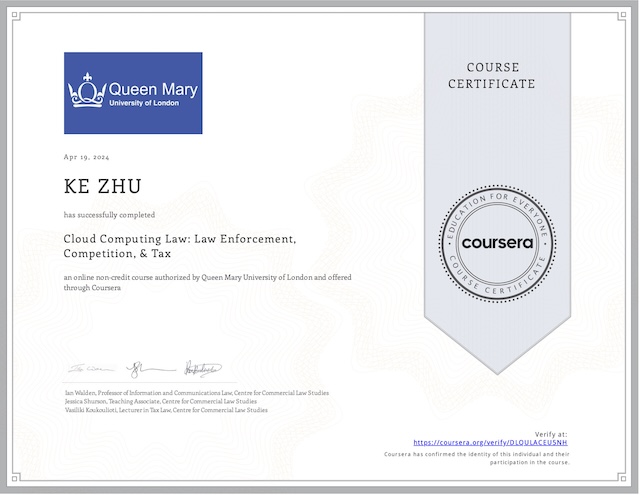A contract is nothing more than an enforceable agreement. The person who makes an offer is offeror, whose counter-party is offeree, who has the power to form a contract. ‘Valid contract’ mean either party can enforce it, in contrast ‘Void contract’ is unenforceable by either party. Some where in the middle between valid and void contracts are ‘Voidable contracts’, which is generally enforceable by one party.
The elements of a valid contract include:
- Agreement (offer, acceptance, and assent)
- Consideration (each party has to bring something of value to the contract)
- In writing (sometimes)
- Capacity (the ability to understand the nature of the transaction)
- Legality
Agreement
An agreement consists of three elements: offer, acceptance, and assent.
Offer
Every contract has to have valid agreement between 2 parties. There has to be an offer and an acceptance in an agreement. An offer is an invitation to enter into a contract. First, the offeror has to intend to make an offer. Second, it must be communicated properly. Third the offer must have all of the material terms of the contract.
There are 3 special types of offer: auctions, rewards, and advertisements. Advertisements are not offers, actually they are invitations for you to come and make an offer. First, the offeree can terminate an offer in either of 2 ways: rejection and counteroffer. Once you rejected it, the offer is dead, you can not resurrect it. Counteroffer in legal sense is rejection + a new offer. Second, the offeror can also terminate an offer by revocation. The offer has to do revocation before the offer is accepted. Third, operation of law can also terminate an offer.
Acceptance
Rejection of an offer is easy, just say no. But for Acceptance, there are a few requirement to have a valid acceptance and form a valid and enforceable contract. The requirements are first unequivocal, second no change terms of offer and third proper communication. Notice the Mailbox Rule: the moment you deposit acceptance mail in mailbox, the acceptance becomes effective and the contract is formed.
Assent
Parties must have “meetings of the minds”, but a few things can negate it. For example: mistakes, fraud, duress / undue influence, unconscionability. Mistake of value won’t void or terminate the contract ( which is still enforceable). In the case of mistake of fact, you can actually terminate a contract. Beyond mistakes, there are 2 types of frauds: fraud in inducement (no assent because there is no meeting of the minds) and fraud in inception. Unconscionability mean in some very rare situations, a count says a contract is so unconscionable. This happens when one party has grossly unequal bargaining power.
Consideration
Considerations are something each party to a contract bring something valuable to the agreement. It is a bargained-for exchange for something of legal value. It can be a promise or an action. There are some kinds of promises or actions are actually not consideration:
- Gratuitous promises (e.g. a gift)
- Past consideration (something you’ve already done, no new value created)
- Pre-existing duty
- Illegal consideration (a promise not to engage in illegal act, a promise not to commit a crime)
- Illusory promises
- Partial payment of your debt
There are 3 situations in which contract is valid even though consideration requirement is not met:
- Promissory estoppel
- Charitable donations
- Debt barred by statute of limitations
Written or Oral
As a general rule, oral contracts are valid and enforceable. The legal doctrine “Statutes of Frauds” requires some of contracts to be written. The acronym MYLEGS helps remember:
- Marriage (prenuptial agreement)
- Year, a contract that can not be performed within one year must be in writing.
- Land
- Executor (of an estate)
- Goods ( > $500 )
- Suretyship, when you promise to be liable for someone else’s debt.
What counts as a contract?
- Signature (any form of written expression of your name or your assent)
- Integration (a bunch of different documents combined into one contract)
- Express or implied
- Merger clause
- Parol evidence rule, any prior oral agreement is not valid and enforceable unless it makes it into the written contract.
A few exceptions of contracts in writing (enforceable even it is not in writing)
- Promissory estoppel
- Partial performance
- Admissions
- Sales of goods
- Merchant-to-merchant
- Custom-made goods
Contractual capacity
You have to have mental ability to understand the nature of your transaction in order to form a contract. There are 3 kinds of people do not have contractual capacity: insane, intoxicated, and infants (minors).
Insane is not a psychological term. Insanity is a legal term which arises when someones do not have the ability to understand the nature of their actions. There are 2 kinds of legal insane: “adjudged insane” (a count has found a person is mentally incompetent, all contracts are void) and “non-adjudged insane” (all contracts are avoidable by insane person – duty of restitution, but the other party still have to abide). Duty of restitution means you got to put everybody back to where they were at the moment of forming the agreement.
Intoxicated party means people who are under influence of drugs, alcohol. Contracts are avoidable in this case. The party who dis-affirms the contract has duty of restitution.
Infants / minors mean people who have not reached majority. A minor who dis-affirms a contract has duty of restoration. Duty of Restoration means return property in whichever condition it was in, at the moment of dis-affirmance. There are exceptions when duty of restoration switches to duty of restitution. It is when the minor was acting recklessly or intentionally making damage to properties or when the minor misrepresented his/her age. A contract for “the necessaries of life” like food, clothes, etc are always enforceable against minors. Minors are liable for contracts for necessaries of life. Parents are also held to be liable.
Legality
Legality requires all valid contracts must have a lawful purpose. A contract to do something legal is always void. Some examples include:
- Commit a crime
- Usury
- Against public policy
- Violation of licensing statute
My Certificate
For more on basics of contracts, please refer to the wonderful course here https://www.coursera.org/learn/corporate-commercial-law-part1
Related Quick Recap
I am Kesler Zhu, thank you for visiting. Check out all of my course reviews at https://KZHU.ai



